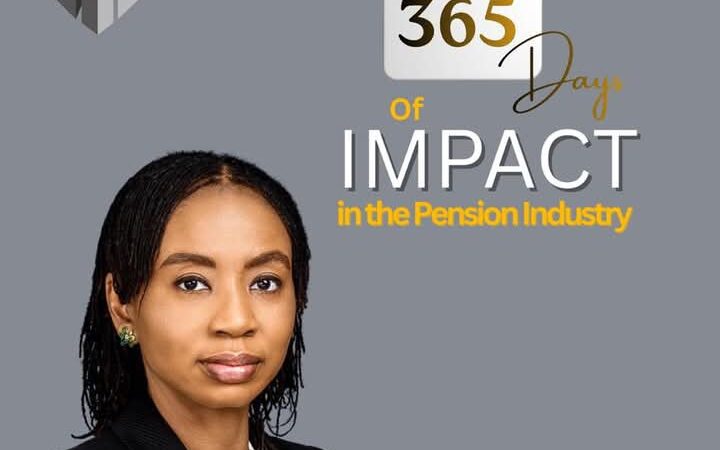PenCom eyes alternative assets in move to balance pension fund investments

Kindly leave a comment and share
Chuks Udo Okonta
Not comfortable with the imbalance in the investments of pension fund assets, where over 80 per cent are invested in fixed income securities with Federal Government Securities accounting for 62 per cent of total pension assets valued at N24.11 trillion as of 30 May 2025, while allocation to alternatives assets, that is private equity and infrastructure funds stands at only about three per cent, the National Pension Commission (PenCom) is considering diversification to alternative asset classes for higher returns, amid rising volatility in the economy.
The Director-General of PenCom Ms Omolola Oloworaran, disclosed this today during a sensitisation workshop organised by the Pension Industry in partnership with FSDA-Africa, on ‘Investment In Alterative Assets For Chairpersons Of Board Investment Strategy And Risk Management Committees Of Pension Fund Administrators(PFAs) in Lagos, noting that while traditional asset classes such as bonds and public equities have served their purpose, the current economic landscape characterised by volatility, rising inflation and declining purchasing power of RSA Contributors, requires dynamic and resilient investment strategies.
She said this potential shift comes as part of efforts to optimize returns for pension contributors, amid evolving market conditions and the need for more resilient, higher-yield investment options.
According to her alternative assets provide a complimentary pillar to core investment strategies of pension funds offers. “Investments in infrastructure and private equity, in particular, help align pension fund portfolio with their investment horizon, provide opportunities for diversification of pension assets and enhance risk adjusted returns.”
Charging the board of PFAs for action she “As chairpersons of the Investment Strategy and Risk Committees, you occupy a position of trust. You have a fiduciary duty, a legal and ethical obligation to act in the best interests of Retirement Savings Account holders at all times. This responsibility includes ensuring that investment decisions are based on sound strategy, robust risk assessments, and are compliant with the guidelines issued by the Commission, she said.
“Fiduciary responsibility also means independence of thought. It means resisting undue influence, asking hard questions, and insisting on transparency. It requires that every investment decision is not only justifiable on paper but also defensible in principle. You must continuously interrogate whether your PFAs’ investment strategy aligns with the long-term liabilities of the pension scheme and reflects a prudent balance of risk and return.”
The PenCom boss stressed that the global financial landscape is becoming more complex, with growing exposure to market volatility, geopolitical uncertainties, and evolving asset classes.
“In this context, it is no longer sufficient to rely on traditional investment approaches. Your committees must deepen oversight of risk management frameworks, ensure scenario analyses are robust, and advocate for portfolio diversification into permissible but less correlated asset classes such as infrastructure, private equity, and sustainable investments within the confines of regulation,” she submitted.
She further stated that a major goal of the workshop is to offer practical insights into the potentials benefits of the alternative asset class and explore how pension funds can effectively leverage these opportunities to mitigate portfolio concentration risk, enhance investment returns, and achieve sustainable growth.
According to her, the overarching theme of investment in the pension industry has consistently been the preservation of capital and generation of fair returns. However, the misperception of safety with liquidity has limited the ability of PFAs to optimally deploy pension funds under their management. Consequently, the Nigerian pension funds are yet to fully optimized investment potentials, despite the favourable long-term demography of members.





